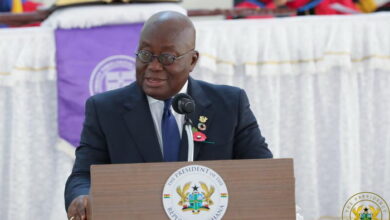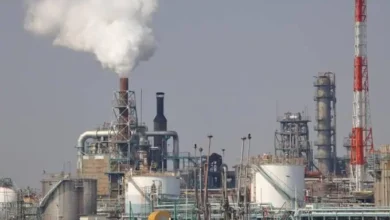WASCAL Emphasizes Research and Capacity-Building for Climate Resilience in West Africa
WASCAL Emphasizes Research and Capacity-Building for Climate Resilience in West Africa

- Professor Ogunjobi stressed the need for increased funding
- Professor Ogunjobi encouraged a shift in citizen perception
- Professor Ogunjobi highlighted the central role of research in identifying solutions
Professor Kehinde Ogunjobi, Deputy Director of the West African Science Service Centre on Climate Change and Adapted Land Use (WASCAL), has underscored the crucial role of research and capacity-building in enhancing Africa’s climate resilience.
Speaking at the final technical workshop for WASCAL’s Research Action Plan 2.0 (WRAP 2.0) in Accra, Professor Ogunjobi stressed the need for increased funding for research and citizen empowerment to effectively address climate challenges in the sub-region.
He explained that capacity-building efforts are essential for fostering a deeper understanding of climate issues and ensuring the dissemination of solutions at the grassroots level.
Professor Ogunjobi encouraged a shift in citizen perception and environmental stewardship, calling for responsible environmental practices and government regulations to address pollution, deforestation, and water mismanagement.
WASCAL Research Action Plan 2.0
The WRAP 2.0 workshop, a key milestone in WASCAL’s mission to become a Climate and Environmental Services Centre (CESC) for West Africa, brought together scientists, stakeholders, and policymakers to discuss the achievements of six climate-related projects.
Funded by the German Federal Ministry of Education and Research (BMBF), these projects have focused on translating scientific research into practical services that benefit communities and mitigate the effects of extreme climate events. The workshop showcased research and innovative products developed from these projects, fostered multidisciplinary knowledge and information-sharing, and exchanged ideas on climate change adaptation options in West Africa.
Professor Ogunjobi highlighted the central role of research in identifying solutions tailored to Africa’s unique challenges. He emphasized the need for early warning measures to protect livelihoods in the region, which is severely affected by extreme climate conditions. WRAP 2.0 bridges the gap between science and community services, ensuring that actionable insights are available to citizens and policymakers.
Key Achievements of WRAP 2.0
- Community-Centered Approach: The research projects were developed using a bottom-up approach, with extensive engagement at the community level to identify pressing climate issues.
- Actionable Results: The projects produced actionable results that are being shared with end-users to drive national development plans, including Nationally Determined Contributions (NDCs).
- Diverse Focus: The six projects under WRAP 2.0 focus on food security, early warning systems, greenhouse gas reduction, and sustainable agricultural practices.
- Capacity-Building: WRAP 2.0 has trained numerous PhD and Master’s students to equip them with the skills to understand climate impacts and engage communities effectively.
Call for Concerted Efforts
Professor Ogunjobi and other participants emphasized the need for concerted efforts from governments, scientific institutions, and citizens to address climate impacts in West Africa. They called for increased funding for research, enhanced capacity-building, and the adoption of sustainable environmental practices.





